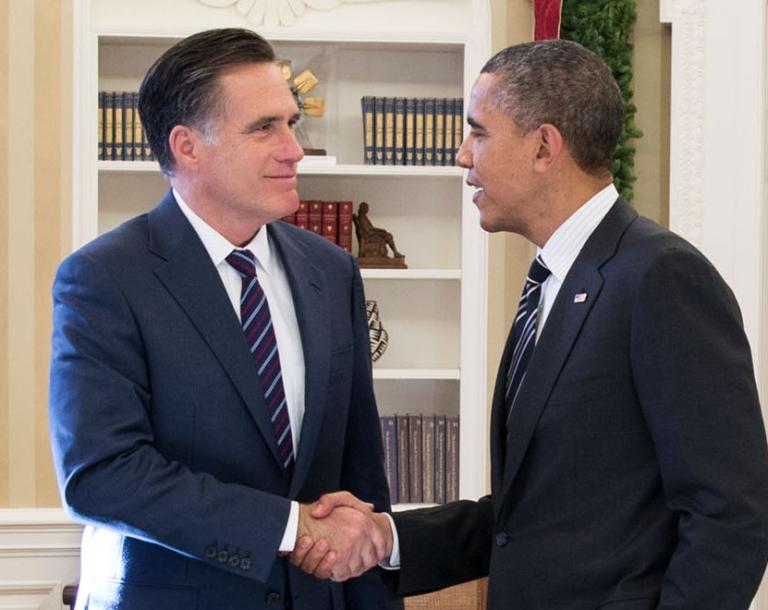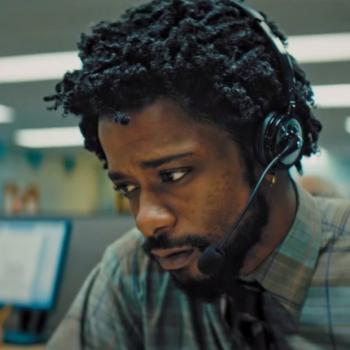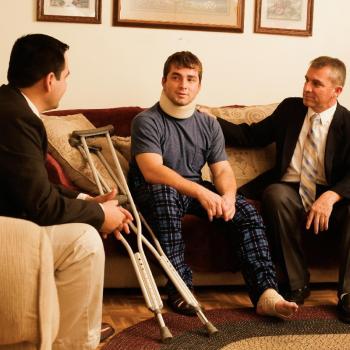
So the guy who was in charge of getting Barack Obama elected both times, David Axelrod, recently sat down for an interview with Mitt Romney. Romney, you might remember, was pretty convinced that Obama didn’t deserve a second term in office. So much so that he ran against him. You might also recall that Romney lost.
So the man who basically orchestrated what may turn out to be the final word in Mitt Romney’s political career just had a cordial chat with him for about an hour, and then uploaded this interview to the Internet for all to hear.
The world of politics is a strange place.
The interview was released as an episode of Axelrod’s podcast for the University of Chicago Institute of Politics about four days ago, but was brought to my attention by Colin Campbell’s article over at Business Insider. The interview dishes out many interesting tidbits about Romney’s life and attitudes toward various political issues. They pontificate on the impact of partisan media, Donald Trump’s controversial statements on immigration, and Romney’s deep affinity for Paul Ryan.
If you are one of those who hold out that maybe Romney is some sort of closet liberal, you will be disappointed by this interview. He still seems pretty convinced that the Democratic platform is predicated on the notion of just handing out stuff for votes. He also tosses around some Margaret Thatcher quotes and says he feels Hillary didn’t defend capitalism with enough vigor in the Democratic debate.
Plus, you get to hear the former governor say the word “poor” in his own special way (pooher) which is always a delight.
Some of the best stuff —and the stuff I want to focus on — comes out toward the beginning, when Romney talks about his life as the son of George Romney, who Axelrod says was a personal inspiration to him as a child and “a progressive force within the Republican party.” They comb through George’s notorious comments concerning the Vietnam War, his relationship to the rest of his party, and his record on civil rights.
According to Mitt, George was particularly concerned about education and “concentrations of economic power,” and he comes across as pretty liberal. Axelrod kind of eats this up, and uses tales of Romney Sr. to prod Mitt about the shifting face of modern conservatism.
The part Mormons are probably most interested in is when Axelrod starts talking about George’s views on race. Axelrod says he was personally very inspired by George’s progressive attitudes on race, particularly when it came to housing policy. This was also something discussed at length recently at the Black, White and Mormon conference at the University of Utah. Suffice it to say that Romney did indeed stake a lot of his own political capital on fighting against housing segregation in Michigan.
“He had such fundamental guiding principles that he never varied from them,” Romney said of his father, “and one of them was that we were all created equal … It was simply unthinkable (to George) that in the United States of America that African Americans would not have the same opportunities and the same prospects for happiness as white Americans.”
Romney’s admiration for his father’s inclusive attitude was basically a perfect setup for Axelrod to bring up Mormonism. That seems to have made Romney kind of uncomfortable.
“He was a devout practitioner of his faith,” Axelrod interjected, explaining that the LDS Church took a position against some of his initiatives in Michigan. “There’s no doubt that he was ahead of the Church on issues of race,” Axelrod said.
Romney comes across as very dismissive of this notion, basically arguing that his father’s position — that all of God’s children are created equal — was also held by the LDS Church. Romney then quickly shifts the discussion to his father’s concerns about Barry Goldwater’s opposition to the Civil Rights Act, etc.
You can tell that Axelrod doesn’t quite buy this, which he shouldn’t, because it simply is not true. The fact of the matter is, there were plenty of leaders within the The Church’s hierarchy that did not accept the notion that all God’s children were created equal. Opposition to the Civil Rights Movement was most certainly present in Mormon leadership.
In fact, Delbert L. Stapley, who served as an Apostle in the LDS Church from 1950 to 1978 (he died about a month before the temple and priesthood ban was lifted) once wrote a letter to George, expressing his concern for the Governor’s attitudes on race. They have the whole letter up at Mormon Matters, but here’s the gist:
Now, don’t think I am against the Negro people, because I have several in my employ. We must understand and recognize their status and then, accordingly, provide for them. I just don’t think we can get around the Lord’s position in relation to the Negro without punishment for our acts; going contrary to that which He has revealed. The Lord will not permit His purposes to be frustrated by man.
Stapley’s letter makes three things very clear: 1.Governor Romney is free to advocated for whatever political policies he deems fair; 2. The Lord has placed black people in a state inferior to white people; 3. If we mess with the societal structures the Lord has put in place, we will lose the Lord’s favor.
He also makes clear that this is a position held by “several others.” He is presumably referring to other leaders in the LDS Church, considering the nature of the letter. This letter shows, at the very least, a feeling of unease among church leadership due to Romney’s progressive stance on race, and it is an unease that they believe to be supported by doctrine and revelation. Stapely spends much of the letter quoting from Joseph Smith and explaining the nature of God’s justice. Edward J. Blum and Paul Harvey touched on this in a piece they did for The Atlantic in 2012, which is worth checking out.
The lesson I take away from this is that we clearly still have a long way to go when we discuss the history racial discrimination in Mormonism. That was also a major takeaway for me from the Black, White and Mormon conference. Something that came up multiple times on those panel discussions is the idea that, despite the fact that the Church has produced the LDS Topics essay on race it still doesn’t seem like many members have actually confronted the realities of historic racism within the church. In fact, it seems as if most members haven’t even bothered to read the essay.
Has Romney read it?
This is not a peripheral issue. We talk a lot about faith crisis these days, and for many of our members the greatest faith crisis comes from the fact that members refuse to acknowledge our own history of racism. When I listened to this interview, hearing the most famous Mormon in America dismiss the idea that the church could have been better on this issue (more like his father, Axelrod implied) was hugely disappointing. I also don’t think this approach is terribly helpful.
Anyway, all in all it’s a pretty interesting conversation for anyone who finds Romney even remotely fascinating as a politician, and Axelrod dishes out a great interview. There are other Mormon tidbits that make their way in there, and Romney refers to his time as Bishop and Stake President as being a “pastor,” which is still weird to me. Are the terms “Bishop” and “Stake President” really that hard to explain?












